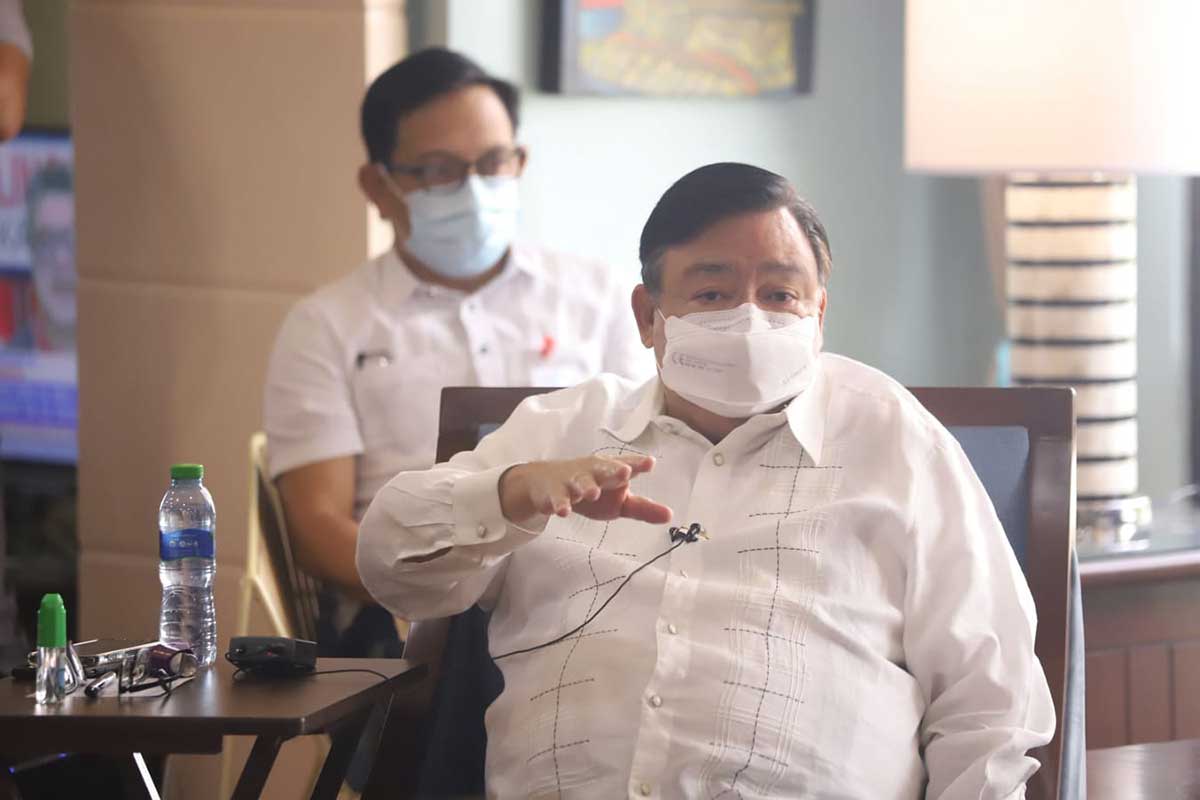
By Joseph B.A. Marzan
The Iloilo City Government on Sunday requested to elevate the city’s Modified General Community Quarantine (MGCQ) status to the stricter Modified Enhanced CQ (MECQ) as coronavirus disease 2019 (COVID-19) cases continue to rise in May 2021.
The Iloilo City Government’s City Health Office-City Epidemiological Surveillance Unit (CHO-CESU) on Sunday confirmed 71 new COVID-19 cases over the weekend – 48 on May 15 and 23 as of 12 pm on May 16.
The CHO-CESU’s data as of May 16 also indicated 514 new cases from May 1 to 15, a 217.28 percent spike compared to 162 cases added on April 1 to 15.
The daily average of new COVID-19 cases in the first half of May also increased to 34 per day, a 209.1 percent increase from the same period in April which was only 11.
The new cases in May include 395 local transmissions, 119 index cases, 4 returning overseas Filipinos, 30 returning residents, and 9 Authorized Persons Outside their Residence (APOR).
The city’s quarantine facilities are also overwhelmed, with 110 patients in quarantine facilities composed of 92 positive COVID-19 cases, 12 close contacts, and 6 returning residents.
Mayor Jerry Treñas had issued Executive Order No. 39-A series of 2021 on May 12 to impose measures that will curb the recent surge.
Treñas also requested a seven-day travel moratorium to and from Negros Occidental, also due to the worsening number of cases there.
The Regional Inter-Agency Task Force (RIATF) on Saturday endorsed the moratorium to the national government, with the backing of the Iloilo and Negros Occidental provincial governments.
On Sunday, Treñas expressed his continued worry over the numbers, saying in online statements that he might request imposing stricter community quarantine levels on the city.
He initially said that the city government wanted to impose the General CQ level due to the surge, but later considered the MECQ, which is the second strictest quarantine level.
The city government posted on its Facebook page the letter-request addressed to Defense Secretary Delfin Lorenzana, chairperson of the National Task Force Against COVID-19; and Department of Interior and Local Government (DILG) Assistant Secretary for Plans and Programs Francisco Cruz, through DILG-Region 6 Director Juan Jovian Ingeniero.
The letter said the city was already under the “High Risk” classification based on the Department of Health’s (DOH) parameters.
It cited data from the DOH’s Feasibility Analysis of Syndromic Surveillance Using Spatio-Temporal Epidemiological Modeler For Early Detection of Diseases (FASSSTER) platform indicating that as of May 16, the city has 6,946 COVID-19 cases (473 active cases, 6,294 recoveries, and 179 deaths).
FASSSTER data also indicated a Mortality Doubling Time of 41.82.
The city government also noted additional data from the DOH as of May 13 showing a 2-Week Growth Rate (2WGR) at 80 percent, and Average Daily Attack Rate (ADAR) per 100,000 population at 5.33.
This was higher than the May 9 data presented by the DOH-Western Visayas Center for Health Development, which showed the city’s 2WGR at 76 percent and the ADAR per 100,000 at 4.15.
The 2WGR is the rate of the volume of new cases reported over a two-week period, while the ADAR refers to the number of cases in an area over a two-week period per 100,000 population, divided by its total population.
The letter also cited outbreaks in one of the hospitals in the city where 28 personnel, including its Medical Director, were confirmed to have contracted the disease.
Data from the CHO-CESU showed the city’s positivity rate at a daily average of 12 percent and a sharp rise to 31.04 percent as of May 13.
As to possible economic considerations, the city government said the City Social Welfare and Development Office (CSWDO) and other units are already formalizing economic aid programs.
The city government asked that the MECQ should run on a 15-day period, or until May 31, “to prevent the collapse of our health care system and to arrest the continuous rise in COVID-19 infections.”
“We are well aware that the conversion to an MECQ status implicates several adjustments and sacrifices from the people but if it is the very thing that can preserve their lives and health, we are more than willing to exhaust all our faculties to see them through it,” Treñas said in the letter.
The CQ proposal, as well as the request for travel moratorium, are not final, as they are still to be approved by the national Inter-Agency Task Force for the Management of Emerging Infectious Diseases (IATF-MEID).
Based on recent events, requesting elevated CQ levels might be a long shot, just like what happened to Negros Occidental when it made a similar request but was disapproved by the IATF-MEID.



















